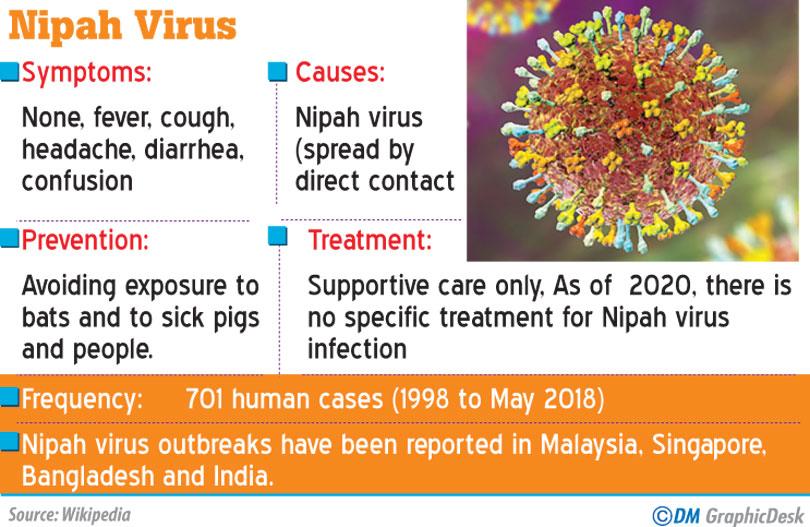22 Sep 2023 - {{hitsCtrl.values.hits}}
In the wake of the outbreak of Nipah virus in the South Indian State of Kerala, the health authorities in Sri Lanka have taken note of it but ruled out any immediate threat.
Speaking to Daily Mirror, Chief Epidemiologist Dr. Samitha Ginige said this is not something new as Nipah virus was first detected in 1998 in Malaysia.
“In previous occasions, this virus did not lead to any major outbreaks. Since that initial outbreak, others have occurred in Bangladesh, India and the Philippines. Bangladesh experienced almost annual outbreaks between 2001 and 2013, most of which were linked to contact with fruit bats,” Dr Ginige explained.
“However, Sri Lanka will keep a close eye on the new developments of the virus,” he added.
Meanwhile, the Health Ministry has taken steps to place orders to import testing kits for early detection of Nipah infections as a precautionary measure.Symptoms of Nipah virus typically occur between four and 14 days after exposure. The most common symptoms are fever followed by headache, cough, sore throat, difficulty breathing and vomiting
Nipah can infect humans and other animals, primarily through eating or drinking products contaminated by bat urine, saliva or droppings. Human-to-human transmission occurs through direct contact with patients and their body secretions, such as urine, blood, and nasal or respiratory droplets.
Nipah is an RNA virus and such viruses tend to have high rates of genetic mutations, making it easier for them to adapt to new hosts and change in response to challenges, for example from their hosts' immune systems. (Sheain Fernandopulle)

08 Jan 2025 1 hours ago
08 Jan 2025 2 hours ago
08 Jan 2025 4 hours ago
08 Jan 2025 5 hours ago